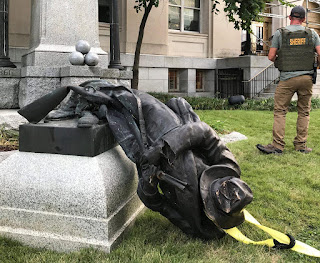Virginia Legislature Passes Ban on Health Care Insurance Mandate
The Virginia House of Delegates on Friday passed legislation intended to shield citizens from any federal requirement that they purchase health insurance. The bill goes to the governor for signing.

Virginia Advances Legislation Against Health Care Insurance Requirement
Virginia took another step on Tuesday toward becoming the first state to enact legislation to exempt its residents from a central feature of President Obama’s health care plan: a requirement that everyone buy health insurance or pay a penalty.
The state House of Delegates, controlled by Republicans, gave preliminary approval to the legislation on Tuesday, after approval last week by the state Senate, controlled by Democrats. The measure is expected to be signed into law shortly by Gov. Bob McDonnell, a Republican.
About two thirds of the states have some form of this legislation in the works, many of them constitutional amendments. All seek to foil any attempt by the federal government — and the insurance industry — to make everyone buy insurance, a measure known as the individual mandate.
Supporters say the individual mandate is essential to making insurance affordable because it would expand the risk pool to include healthy people who don’t have insurance now. Both the House and the Senate have passed their own versions of health care bills containing an individual mandate, but their attempts at merging them into one bill have stalled.
But even as various states advance these moves against the individual mandate, opponents decry their efforts as mere political theater with no force of law behind them.
Such is the argument made by Timothy Stoltzfus Jost, a law professor at Washington and Lee University in Lexington, Va., in an essay published on Tuesday in The New England Journal of Medicine.
He writes that the goals of these state measures are “constitutionally impossible” because the United States Constitution establishes the supremacy of national law over state law.
Nonetheless, Mr. Jost suggests that the individual mandate may be vulnerable in part because there is no precedent for such a requirement. He also suggests that such a mandate may be impossible to enforce and that these state measures may only encourage citizens in their efforts to resist compliance.
“The state laws can thus be seen as invitations to civil disobedience that counsel state citizens to ‘violate the federal law, wave this statute in their face and dare them to come after you,’ ” he writes.
Opponents argue that the individual mandate is an overreach of federal authority and unconstitutional.
Robert Marshall, the Republican delegate in Virginia who introduced the measure in the House of Delegates, quoted Tuesday from the Federalist Papers and denounced the mandate as tyrannical.
“In 220 years, Congress has never tried to compel people to purchase any good or service,” he told his colleagues, according to a report in The Virginian-Pilot. “You are the sentinels of the lives, liberty and property of your constituents. I urge you to protect them against the usurpers in Washington, D.C.”
Fact or Fiction? State Laws Thwart Must-Buy Rule
Claim: State laws can thwart a federal mandate that would require people to buy health insurance.
The Democrats' insurance overhaul requires that individuals buy coverage if their employer doesn't provide it for them, or if they are not in a government-paid program such as Medicare. The Senate bill would, after a phase-in period, require those without coverage pay a tax penalty of $750 per year, up to a maximum of $2,250 per family, or a penalty of 2 percent of household income. The non-partisan American Academy of Actuaries says this penalty is too weak, which will limit its effectiveness in deterring "adverse selection," the tendency of sick people to buy insurance and of healthier people to go without coverage. Adverse selection creates insurance risk pools with too many sick people and too few healthy ones. But for critics of the insurance overhaul, the penalty is too high or is an unacceptable use of federal power.
Fact or Fiction?
Fiction. This week, the Virginia Senate passed by a vote of 23 to 17 a bill saying that no resident shall be required to obtain or maintain insurance coverage. Five Democratic senators voted for the bill, including one who represents a northern Virginia district that President Obama won in 2008. According to the National Conference of State Legislatures, lawmakers in 28 other states are considering similar legislation.
On November's ballot in Arizona will be a proposed amendment to the state constitution saying that no person or employer can be forced to participate in any health care system. "This is mainly political posturing," said Mark Hall, professor of law and public health at Wake Forest University. "Under the Constitution's Supremacy Clause, state law obviously cannot trump or override federal law." But the Virginia vote indicates political sentiment in a battleground state.
View Larger Map
Sources: NY Times, MSNBC, Google Maps




































































.jpg)























No comments:
Post a Comment